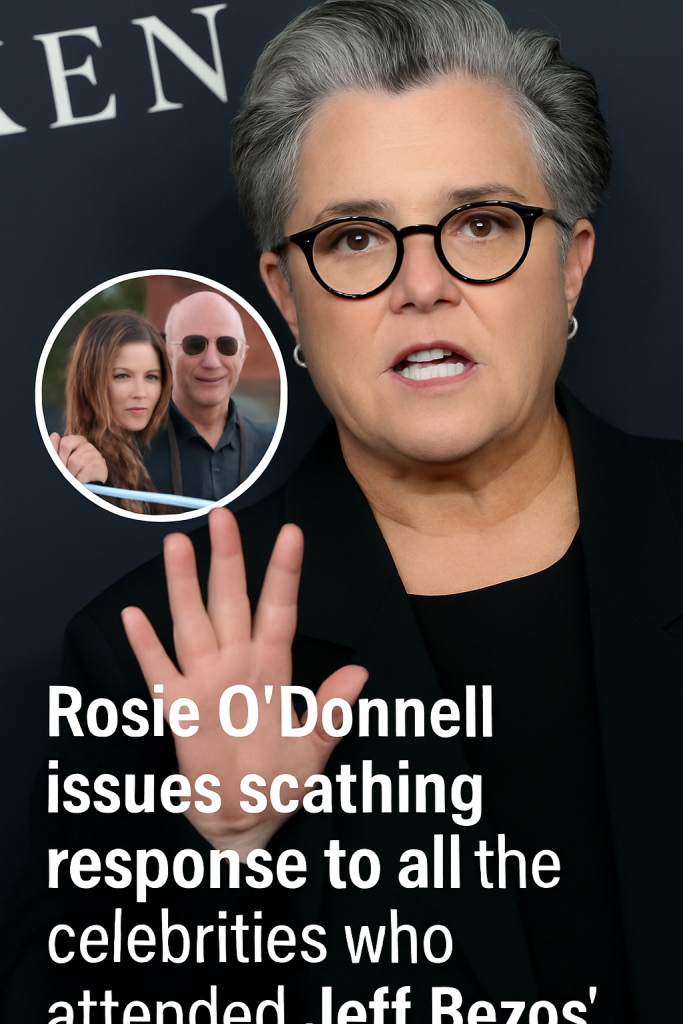In what has quickly become one of the most talked-about social media moments of the year, Rosie O’Donnell has ignited a fiery debate after unleashing a sharp critique of the celebrity guests who attended Jeff Bezos’ extravagant $56 million wedding celebration. The televised event, stacked with star power and opulence, not only showcased Bezos’ lavish lifestyle but also sparked controversy thanks to O’Donnell’s scathing remarks aimed at the high-profile attendees.
The wedding, widely reported as an unrivaled display of wealth and exclusivity, reportedly cost a staggering $56 million, making it one of the most expensive private celebrations ever in recent memory. Guests included an array of A-list celebrities, influencers, and business magnates, all gathered on a secluded estate to mark the union of the Amazon founder and his new spouse.
Rosie O’Donnell’s response came swiftly on her popular social media platforms and on segments of her show, where she expressed deep dissatisfaction—not only with Bezos’ excessive spending but with the celebrities who chose to partake in the extravagant event amidst ongoing economic challenges faced by many people globally. O’Donnell didn’t hold back, calling out the celebrities for what she framed as a gross display of insensitivity and elitism.
She criticized them for seeming to prioritize glamorous photo-ops and business networking over empathy and social responsibility. “To everyone who attended that $56 million wedding,” Rosie wrote in one of her posts, “what about the millions struggling every day? What message are you sending?” Her remarks resonated with many viewers who see such extravagant spending as tone-deaf in a time of economic uncertainty and mounting social pressures.
“It’s not just about one man’s wealth,” O’Donnell emphasized in a discussion, “it’s about who enabled this spectacle and why those celebrities chose to celebrate amidst such inequality.” This sentiment sparked intense conversations online, with social media users debating whether celebrities at such events bear responsibility for endorsing such extravagant displays, or if the criticism should be squarely aimed at Bezos himself.
The backlash has led to a broader discourse on wealth, celebrity culture, and responsibility. Critics argue that while Bezos, as the host and billionaire, is clearly responsible for the scale of the celebration, the attending celebrities—many of whom have large platforms and influence—may unwittingly legitimize such excess by participating and posting pictures from the event.
Supporters of the guests suggest that attending a private event is a personal choice and not necessarily a political statement. They also highlight that many celebrities are involved in charitable work and advocacy. Nevertheless, the optics of the event have raised questions about awareness and accountability in the era of social media.
Meanwhile, Bezos and his team have not publicly responded to O’Donnell’s remarks or the wider criticism surrounding the wedding bash. The couple’s wedding remains a pinnacle example of luxury, yet the accompanying controversy embodies the contemporary tensions between wealth celebration and public perception of social equity.
As discussions continue, this episode underscores the evolving expectations placed on public figures and the scrutiny they face in an increasingly polarized and socially conscious world.



